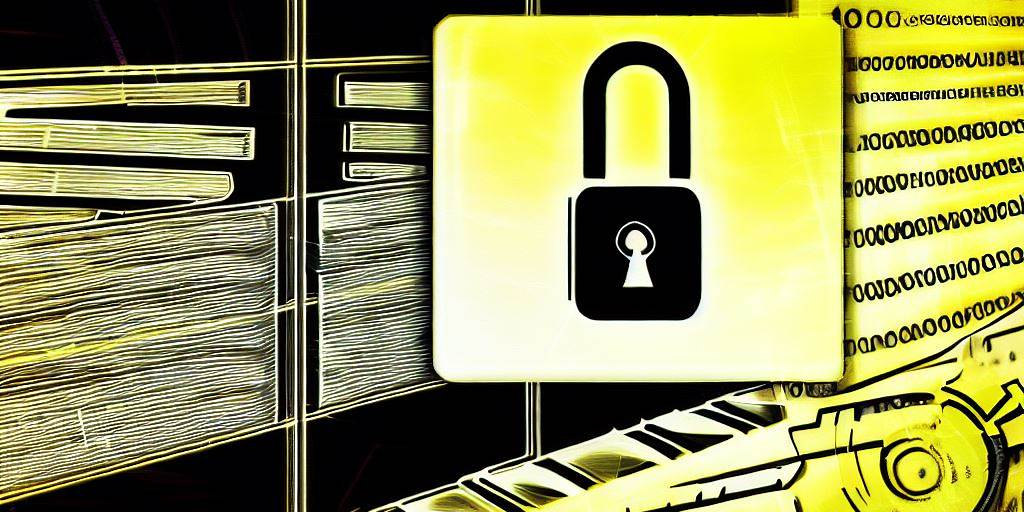Engineering
Secure Archives: Safe Data & File Sharing for Websites
Discover how secure archives protect sensitive files during sharing. Learn about encryption, authorization, and compliance benefits using ApyHub’s archive and unarchive APIs.
MA
Maria Hayat
Last updated on May 03, 2023
Secure Archives: Safe Data & File Sharing for Websites
Introduction
With the rise of online services, the issue of cybersecurity has become more prevalent than ever before. Websites and applications do their best to ensure the security of their users' data, and this includes files being shared both on the site and within the application.
We will now discuss why we believe that websites should use secure archives to share files. Then, we will talk a bit about how the ApyHub archive and unarchive utility APIs can help them achieve this in an efficient manner.
Encryption and file confidentiality
First, let's discuss why using secure archives to share files is important. The core reason is confidentiality. When files are shared or made available for downloading, there is always the risk of interception by mal-intended or unauthorized parties. This is where secure archives come into the picture.
Secure archives can ensure the confidentiality of the files being shared by encrypting them with a strong encryption algorithm. This ensures that only authorized users with the decryption key can access the files.
Authorisation
Secure archives can provide authorisation to ensure that the files are only accessed by authorized users with whom the keys to unlock the archive are shared. This is done by using passwords, digital certificates, or other mechanisms to ensure that only the intended recipient can access the files. This is essential for sensitive data that should only be accessed by specific users.
Regulation and compliance
Using secure archives can help websites comply with regulations and industry standards that require the protection of sensitive data. For instance, the General Data Protection Regulation (GDPR), the Health Insurance Portability and Accountability Act (HIPAA), or the Payment Card Industry Data Security Standard (PCI DSS) all require that sensitive data is protected. By using secure archives, websites can ensure that they are compliant with these regulations and standards while allowing authorized access to sensitive data / assets.
Enhancing credibility
Finally, using secure archives to share files can enhance the professionalism and credibility of the website. It shows that the website takes security seriously and is willing to go the extra mile to protect its users' data. This can help to build trust with users and improve the website's reputation.
Bottomline: Using secure archives to share files is important when your website deals with and shares sensitive data and documents. Now let's explore how the ApyHub archive and unarchive utility APIs can help websites achieve this.
ApyHub archive and unarchive utility APIs support a wide range of archive formats, including ZIP, GZIP, TAR, and RAR. The APIs can be used to create, extract, and modify archives, making them ideal for managing large files. Additionally, ApyHub provides a range of encryption options, including AES-256 encryption, to ensure that files are secure during transmission.
Conclusion
We have designed the ApyHub archive and unarchive utility APIs in a way that makes them easy to use. The APIs are easy to integrate into websites and can be used with a wide range of programming languages, including Python, PHP, and Java. And hey! Let's not forget scalability. ApyHub's cloud-based platform can handle large volumes of data, making it ideal for websites with high traffic or large file transfer needs.
Building an application that allows sharing files?
FAQs: Secure Archives and File Sharing
Q1: What are secure archives?
A: Secure archives are compressed files (like ZIP or TAR) protected through encryption and access control. They ensure that only authorized users can view or extract sensitive data.
Q2: Why should websites use secure archives for file sharing?
A: Secure archives prevent unauthorized access, maintain data confidentiality during transmission, and help websites comply with data protection regulations like GDPR and HIPAA.
Q3: How does encryption improve file security?
A: Encryption converts data into unreadable code that can only be decrypted with a key. Using strong algorithms like AES-256 ensures that files remain secure, even if intercepted.
Q4: Can I integrate secure archiving into my website or app easily?
A: Yes. APIs like ApyHub’s Archive and Unarchive APIs make it simple to programmatically compress, encrypt, and extract files within your web or backend applications using standard REST calls.
Q5: Which archive formats are supported by ApyHub’s API?
A: ApyHub supports popular formats such as ZIP, GZIP, TAR, and RAR, along with AES-256 encryption for added protection.
Q6: Does using secure archives help with compliance?
A: Absolutely. Secure archives align with major data protection frameworks (e.g., GDPR, HIPAA, PCI DSS), helping businesses handle sensitive data responsibly and meet compliance standards.
Q7: Can ApyHub’s archive API handle large file volumes?
A: Yes. ApyHub’s cloud-based infrastructure is built for scalability, enabling the secure handling of high-traffic websites or large data transfers efficiently.


